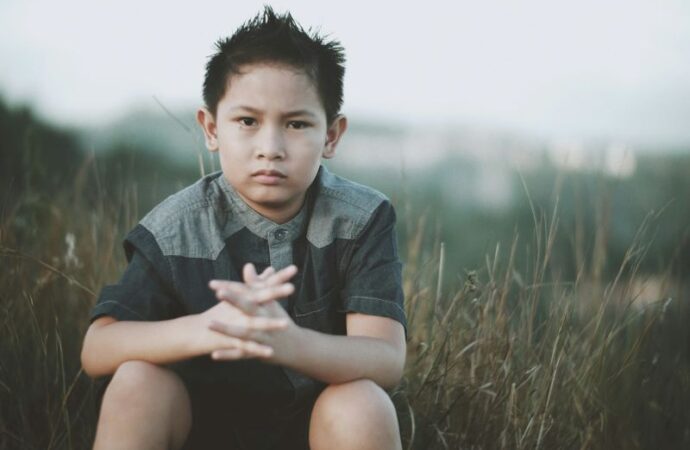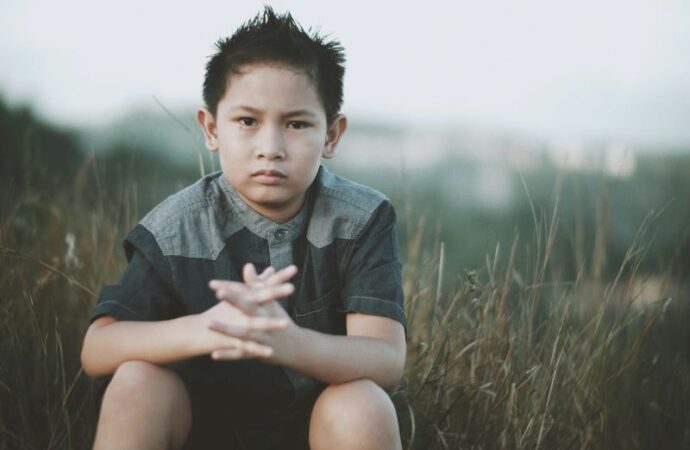Feeding Mind, Pursuing Truth

No one wants to see their child go off to war. But as a former intelligence officer and mother of two young sons, I’ve given a lot of thought to, well, the topic of war.
I’ve considered the possibility that, if a global conflict broke out, my sons may find themselves suddenly called upon to defend the nation. So, if World War III does occur, here are some ways that I plan to prepare my sons.
5 Ways I’m Preparing My Children for World War III
1. Remembering My Duty as a Mother
The first way that I am preparing for the possibility of World War III in my children’s lifetime is by reminding myself that my duty as a mother is actually not to keep my children out of harm’s way.
That’s right—it’s not actually a mother’s job to keep her children from harm. Rather, it’s a mother’s job to ensure that her children know how to properly confront danger.
This is a lesson that I wrestled with quite a bit while experiencing some of the ugliness of war in my previous job, and comprehending the full gravity of a parent’s responsibility actually provided a great deal of spiritual peace and clarity: Not only is it impossible for parents to rid the world of dangers and horrors such as war, but it is not what we are meant to do.
What is within our power, and what we should do, is raise our children to have the fortitude to weather even the most terrible storms. And that’s a remarkable, albeit frightening, duty and privilege that I have as a mother.
Practically speaking, this means that I am constantly reorienting my attitude as a parent; rather than thinking, how can I make sure my children never come across/experience/have to worry about X, I try instead to think, how can I raise my children to know best how to deal with/change/confront X.
2. Teaching Timeless Values
Second, I will teach my children to hold firm to their values despite what others think. They should know that public opinion about a conflict can and will change. If they resolve to answer their nation’s call and go to war, they need to understand that not all people will deem them heroes.
As such, their resolve, their sense of duty to their nation, and their moral compass must always be stronger than public opinion (indeed, if their conviction to act can be swayed by public opinion, they need to carefully re-evaluate their conviction). The U.S. saga in Vietnam is a good way to illustrate this.
3. Studying History
This brings me to my third point: I’ll be teaching my children not only to be students of the Vietnam War but of the entire history of war. A knowledge of how and why people historically have taken up arms not only familiarizes children with common military tactics and strategies, but, more importantly, it tells a lot about humanity itself. Humanity’s history of violent conflict may offer the best (if not the most sordid) illustrations of both the darkest and the noblest aspects of human nature.
Because my children could see conflict in the Pacific theater involving China, I want them to study Chinese history, especially Mao Zedong’s Marxist theories and how his policies left millions dead. I want them to understand the tyranny that the Chinese people have lived through in China’s recent past so that they have both a sense of compassion for Chinese civilians and an understanding of the brutality of the Chinese Communist regime and its disregard for human dignity, which may help prepare them for any atrocities they may encounter.
4. Learning from Everyday Heroes as well as Renowned Ones
I will ensure that my children study warriors and heroes both fictional and historical. They will know the stories of figures like King David, Achilles, Spartacus, Sun Tzu, George Washington, Joshua Lawrence Chamberlain, Harriet Tubman (not many people know that she was a Union spy and scout!), the Tuskegee Airmen, and Winston Churchill, just to name a few that jump to mind.
Familiarizing youth with warriors and heroes should not, however, be limited to heroes of great renown, so I’ll also encourage my children to seek out and learn from the more “everyday” war heroes, such as the elderly stranger with the “Vietnam veteran” cap with whom my child may strike up a conversation when they meet one another by happenstance.
Though by no means without their faults, these warriors and heroes—including those unrecognized or unappreciated ones around us—impress upon children the beauty of noble actions, especially in a divisive, politically charged time.
5. Raising Children of Faith
Finally, and most importantly, I plan to emphasize to my children that the Christian faith that my husband and I strive to pass on to them holds everything they need to face the greatest challenges in life, including death. It’s significant that in the following famous passage from his letter to the Ephesians Paul used armor and battle imagery to illustrate the Christian’s need to be prepared:
Be strong in the Lord and in his mighty power. Put on the full armor of God, so that you can take your stand against the devil’s schemes. For our struggle is not against flesh and blood, but against the rulers, against the authorities, against the powers of this dark world and against the spiritual forces of evil in the heavenly realms. Therefore put on the full armor of God, so that when the day of evil comes, you may be able to stand your ground, and after you have done everything, to stand. Stand firm then, with the belt of truth buckled around your waist, with the breastplate of righteousness in place, and with your feet fitted with the readiness that comes from the gospel of peace. In addition to all this, take up the shield of faith, with which you can extinguish all the flaming arrows of the evil one. Take the helmet of salvation and the sword of the Spirit, which is the word of God.
Paul knew that the Christian life is not an easy one. It will call for, as we say so often in defense and intelligence circles, “resilience.”
According to Paul, this spiritual and mental strength—or resilience—comes through aligning oneself with truth, living righteously, spreading the gospel’s peace wherever possible, and living by faith, emboldened by trust in our salvation.
Although modern firepower is quite horrific, the spiritual forces of evil are actually a more insidious foe. If our faith gives us what we need to stand against even the invisible “rulers and authorities” of the spiritual realm, then we certainly have the mental and spiritual resiliency to stand against adversarial human forces in an earthly conflict. The Gospel of Matthew tells us, “Do not be afraid of those who kill the body but cannot kill the soul.”
Just as teaching children when and how to confront danger is actually good parenting, so, too, confronting the inevitability of death is an integral part of a life well lived. Because we need not fear those who kill the body but cannot kill the soul, evil cannot ultimately prevail. Victory is not determined on a battlefield, but in the soul of man and man’s relationship with the divine.
I strive to teach my children (and myself!) the simple truth that if we’re right with God, we will have the mental and spiritual resilience to withstand whatever the world throws at us, even if it be World War III.
—
By Rebekah Bills. Original here. Reproduced with permission.
Image credit: Unsplash
The views/statements of fact, opinion, or analysis expressed in this article are strictly the author’s own and do not reflect the official policy or position of the U.S. Government.
